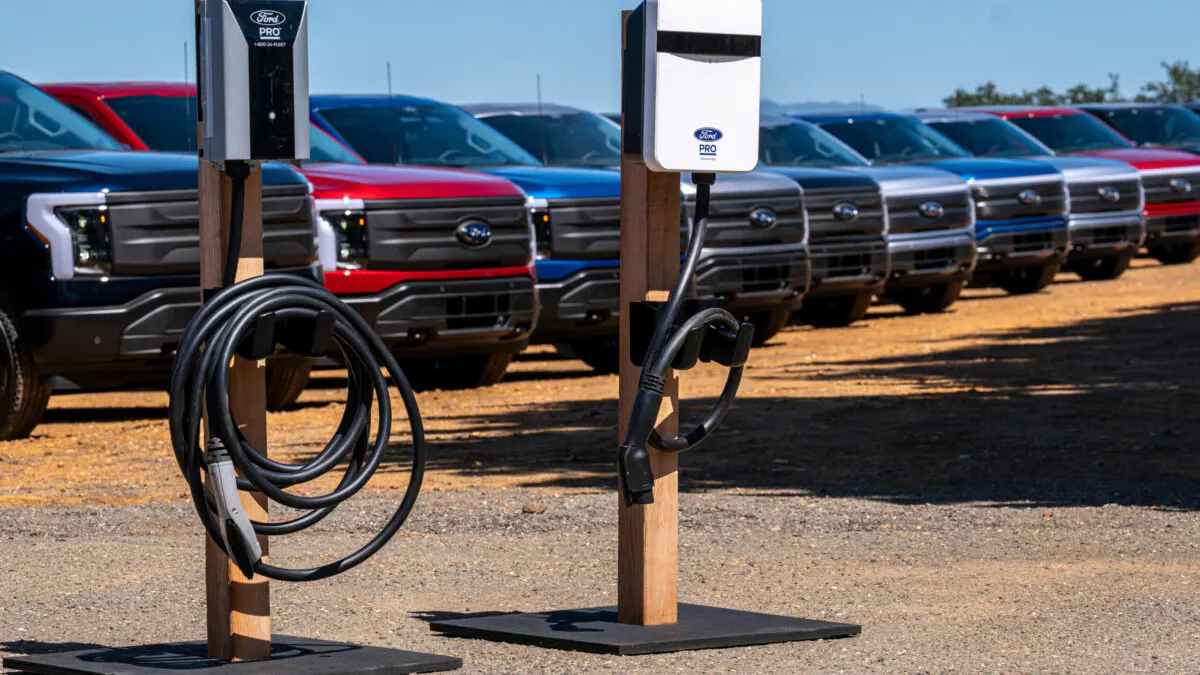Most electric cars won’t qualify for the tax credits established by the tax and spending plan recently passed by Democrats in the Senate.
According to a report from The Associated Press Tuesday, most new electric vehicles (EVs) would not qualify for the $7,500 tax credit for new EVs established in the climate spending provisions of the so-called “Inflation Reduction Act.” In order to qualify for the credit, new electric cars must have batteries manufactured in North America, with at least 40% of its metals mined or recycled from North America; those rules become much more strict in a few years, making it even harder for new EVs to qualify, experts said.
“The EV tax credit (aka the Clean Vehicle Credit) in the bill is an effective tool to help reduce the upfront cost of an EV for the millions of Americans in the market for a new car or truck,” John Bozzella, the president and CEO of automotive industry trade group Alliance for Automotive Innovation wrote in a blog post Friday, ahead of the Senate vote. “But… as currently written, the material, component and assembly requirements in the Clean Vehicle Credit will immediately reduce (by a lot) the number of qualifying electric vehicles available to consumers for purchase with the tax credit. Here’s what I mean: there are 72 EV models currently available for purchase in the United States including battery, plug-in hybrid and fuel cell electric vehicles. Seventy percent of those EVs would immediately become ineligible when the bill passes and none would qualify for the full credit when additional sourcing requirements go into effect. Zero.”
“The $7500 credit might exist on paper, but no vehicles will qualify for this purchase incentive over the next few years,” Bozzella added.
Under the “Inflation Reduction Act,” in order to qualify for the full $7,500 credit, at least 40% of the component materials used in the battery of an EV must be sourced from North America. By 2027, that threshold increases to 80% of battery materials. If that requirement is not met, the EV would only qualify for half the credit. In addition, a separate rule states that at least 50% of the batteries’ value must be manufactured or assembled in North America; the rule becomes stricter over time, eventually requiring 100% of the battery to be made in North America by 2029.
If the vehicle doesn’t meet these qualifications, the whole tax credit will be lost. Yet another rule requires that the rest of the EV itself must be made in North America in order to qualify for the tax credit. On top of all those requirements, the credit does not apply to electric trucks or SUVs with retail prices above $80,000 or cars above $55,000; the credit is also only available to individuals who make less than $150,000 per year or families who make less than $300,000 per year.
Another provision in the bill prohibits any vehicle from qualifying for the credit if it has battery materials sourced from China by the year 2024.
In his blog post, Bozzella recommended a gradual process of implementing the assembly restrictions to “better reflect current geopolitical, sourcing and mineral extraction realities,” in order to keep the credit viable while building up the critical mineral supply chain, including broadening the list of countries to source critical minerals from.

.png)
.png)

